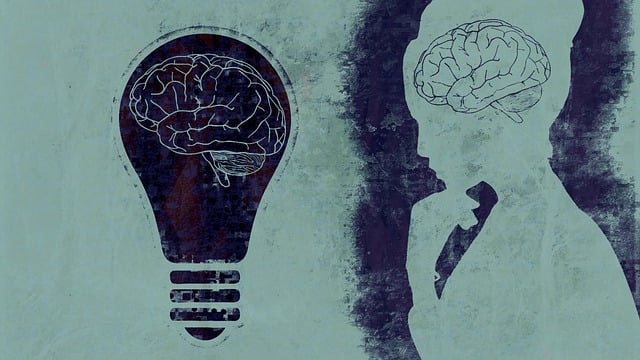Mental health professionals face significant challenges managing complex cases of Louisville Neuro Disorders, depression, anxiety, and trauma, leading to stress, burnout, and secondary trauma. To mitigate these risks, they must develop emotional intelligence, incorporate coping mechanisms, engage in self-care, and use strategies like mindfulness and risk management planning. Louisville Neuro Disorders Therapy (LNDT) stands out with its dynamic approach, focusing on continuous monitoring, progress assessments, and evidence-based practices to create safe, supportive environments for clients. LNDT also offers training in stress management, trauma support, and crisis intervention, empowering therapists to navigate challenges competently and foster healing.
Mental health professionals face unique challenges and risks daily. This article guides practitioners through a comprehensive risk management planning process, essential for maintaining a healthy work environment. We explore specific risks within the context of Louisville Neuro Disorders Therapy, offering insights on assessing hazards, crafting strategies, and implementing safety protocols. By adopting these practices, therapists can enhance client care, mitigate risks, and foster a resilient practice in today’s demanding landscape.
- Understanding Mental Health Professional's Unique Risks
- Assessing and Identifying Potential Hazards
- Developing Effective Risk Management Strategies
- Implementing Safety Protocols for Client Care
- Continuous Monitoring and Adaptability in Louisville Neuro Disorders Therapy
Understanding Mental Health Professional's Unique Risks

Mental health professionals, such as therapists and counselors, face unique challenges that can significantly impact their well-being. In addition to the emotional demands of their work, they often deal with complex cases involving traumatic experiences, severe mental disorders like Louisville Neuro Disorders, depression, anxiety, and other psychological conditions. This can lead to high levels of stress, burnout, and even secondary trauma.
The dynamic nature of mental health practice requires professionals to constantly adapt and manage intense emotions. They must develop robust emotional intelligence to navigate these complex situations effectively. Moreover, the constant exposure to distressing client stories necessitates robust coping mechanisms and self-care practices. Incorporating elements like depression prevention strategies, mindfulness techniques, and engaging in a Mental Wellness Podcast Series Production can be part of their risk management planning to foster resilience and maintain healthy boundaries both personally and professionally.
Assessing and Identifying Potential Hazards

Mental health professionals, especially those specializing in Louisville Neuro Disorders Therapy, must be vigilant in assessing and identifying potential hazards that could impact their practice and clients’ well-being. This includes recognizing the unique challenges within the field of neurotherapy, such as managing complex patient cases and addressing the Mental Illness Stigma Reduction Efforts. By thoroughly evaluating these risks, professionals can create a safe and supportive environment for their clients.
One effective strategy is incorporating Self-Awareness Exercises and Emotional Intelligence into practice routines. These tools empower therapists to understand their own emotional responses and potential biases, which are crucial for maintaining objectivity and empathy. Through regular self-reflection and Emotional Intelligence development, professionals can better navigate the therapeutic process, ensuring client safety and enhancing the overall effectiveness of treatment plans.
Developing Effective Risk Management Strategies

In the field of mental health care, particularly within Louisville Neuro Disorders Therapy, effective risk management planning is paramount to ensuring patient safety and maintaining a healthy work environment. Risk management strategies should be tailored to address specific challenges faced by professionals dealing with complex neurodisorders and trauma. A comprehensive approach involves regular training in Stress Management and Trauma Support Services, enabling therapists to recognize early warning signs of distress or potential risks among their clients.
By implementing robust risk assessment tools and protocol, Louisville Neuro Disorders Therapy can proactively mitigate dangers. This includes not only identifying high-risk cases but also fostering a culture where professionals feel equipped to handle crises. Regular reviews of existing protocols and staying updated with the latest research in risk management planning for mental health professionals are vital to enhancing service quality and client outcomes.
Implementing Safety Protocols for Client Care

Mental health professionals in Louisville Neuro Disorders Therapy recognize that effective risk management involves more than just theoretical knowledge; it requires practical, actionable safety protocols. These protocols are designed to create a secure environment that promotes healing and growth for clients while mitigating potential risks. By implementing robust measures, therapists ensure that their practices align with the highest standards of care, fostering trust among clients and colleagues alike.
One key aspect is establishing clear communication channels and crisis intervention plans. Therapists must be equipped with the skills to recognize early warning signs of deterioration in client conditions, enabling prompt interventions. Regular staff training on de-escalation techniques and crisis management further enhances the ability to handle sensitive situations. These proactive strategies not only protect clients but also boost the confidence of mental health professionals, empowering them to navigate challenging scenarios with resilience and competence.
Continuous Monitoring and Adaptability in Louisville Neuro Disorders Therapy

Louisville Neuro Disorders Therapy (LNDT) stands out in the field of mental health care for its commitment to continuous monitoring and adaptability. This dynamic approach ensures that patients receive up-to-date, personalized treatments tailored to their evolving needs. By regularly assessing each individual’s progress, LNDT professionals can swiftly adjust therapy plans, addressing any emerging challenges or new symptoms effectively.
This proactive strategy is further strengthened by the organization’s association with Stress Management Workshops, which equips both therapists and clients with valuable tools for stress reduction and mental wellness maintenance. Through ongoing training and knowledge sharing, LNDT stays at the forefront of evidence-based practices in risk assessment for mental health professionals, fostering a safe and supportive environment for all patients navigating neuro disorders.
Mental health professionals face unique challenges that demand tailored risk management planning. By understanding the specific risks, such as those encountered in Louisville Neuro Disorders Therapy, and implementing robust strategies, therapists can ensure a safer environment for both clients and themselves. Continuous monitoring and adaptability are key to success, allowing practitioners to navigate the complexities of their work with enhanced resilience and effectiveness.










